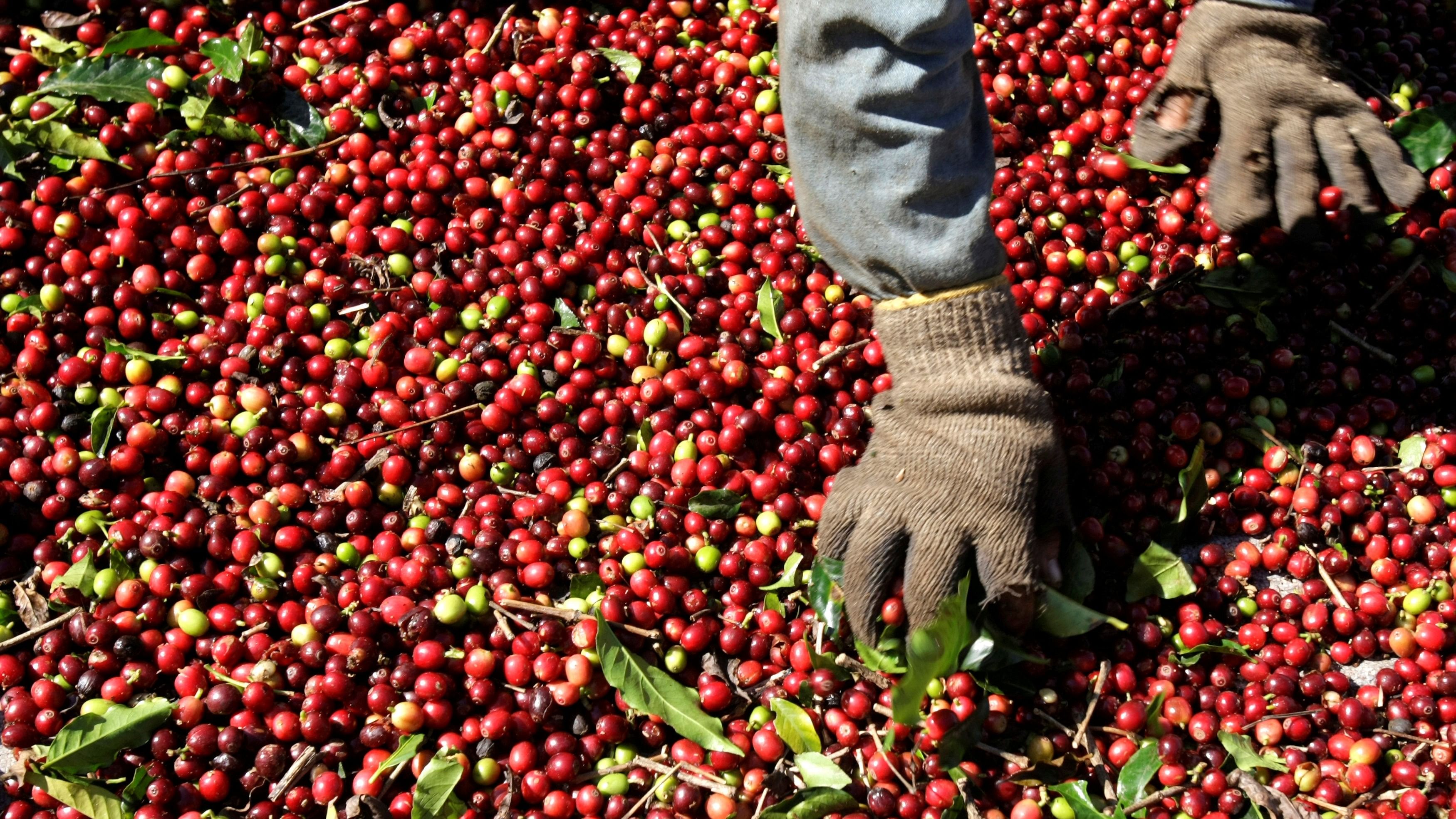
A worker selects arabica coffee beans at Conquista farm in Alfenas in the southern Brazilian city of Minas Gerais.
Credit: Reuters photo
Bengaluru: Extreme climate events leading to untimely rains, fires and droughts across South Asia and Latin America have fueled worries for the already surging coffee prices. This alongside Indian consumers’ rising preference towards coffee as a beverage has proven beneficial for the producers.
“Local markets are thriving with the growing demand and most of the farmers would be in a good position where they sell out every year and earn higher profits. They don't have to sit on stock, they don't have to wait for a trader to pick up any,” said Viggnesh V, a coffee industry consultant.
Prices will continue to rise in the foreseeable future, stakeholders and industry experts told DH.
“It is most likely to plateau at max after two years because at the point when it crosses a particular set, it will become completely unaffordable for anyone in the value chain,” Viggnesh said.
Coffee prices, mainly Arabica beans, have touched their highest prices in 13 years due to persistent supply disruptions. Prices are up roughly 40 per cent in 2024 as shortages of the cheaper robusta beans have evoked demand for the arabica variety favoured by specialty chains.
Global scenario
The rally in coffee prices has been gathering pace due to erratic climate in top producer Brazil. The sporadic rains and warmer temperatures have hurt the South American nation’s production.
Prices for the cheaper robusta variety, which is also produced by Brazil have also jumped. This, in turn, has left companies and consumers paying for pricier coffee, and retailers have been scrambling to secure beans.
Vietnam, the second largest producer of coffee is also facing excess rain coupled with farmers shifting to the production of Durian, a fruit widely popular in south Asia which is turning out to be more profitable than coffee.
Indian market expected to grow
The two main varieties of coffee manufactured in India are Arabica and Robusta. Arabica has more demand than robusta coffee due to its mild aromatic flavour. According to the Food and Agriculture Organization of India, about 70 per cent of the total coffee produced in India is exported. India ranks fifth in total coffee exports in the world.
Karnataka produces around 71 per cent of total coffee in India, a majority of which is Robusta. The rest of the production comes from Kerala, Tamil Nadu and the northeastern region. India produced 3,74,200 metric tonnes (MTs) in 2023-24, out of which Karnataka contributed 2,66,885 MT.
India’s coffee market was valued at $478 million in 2022 and is expected to reach $1.2 billion by 2032 at a compound annual growth rate (CAGR) of 9.87 per cent during the forecast period 2024-2033, according to data by Custom Market Insights.
However, several challenges cloud the optimistic future of coffee producers, shortage of labour being one of them. “Almost 65 per cent of our total cost on an estate is labour cost, which has increased steadily over the past few years. 70 per cent of Brazilian coffee crop is done mechanically because their areas are flat, whereas ours are on slopes with coffee trees which makes us highly dependent on labour,” said Jacob Mammen, managing director of Badra Estates located in Chikkamagaluru.
Climate change has been another headwind for coffee producers and experts suggest that it is here to stay. Sudden rain spells have in fact damaged the coffee crops or contributed to low quality.
Some industry insiders say the impact is minimal for now. Suhas Dwarkanath of Benki Coffee said, “To be honest, there have been difficulties in terms of water, temperatures, but it has not affected production majorly because it is not something new.”
However, data by the Coffee Board of India shows a marginal decline in coffee production in India. India produced 3,74,200 MTs in 2023-24 against 3,52,000 MT in 2022-23.
“Now that the middle class is growing and disposable income is increasing, India will become one of the biggest consumers of coffee in the next 3-5 years and the transition can already be seen,” added Benki’s Dwarkanath.